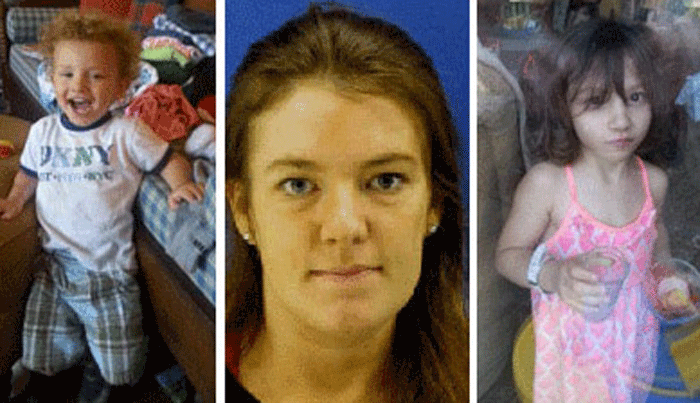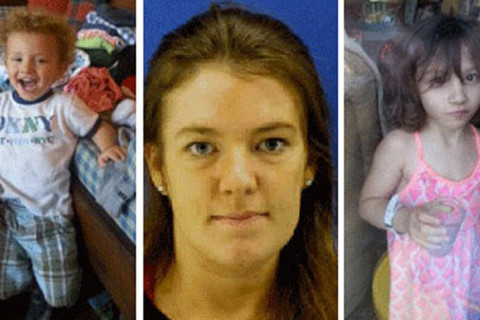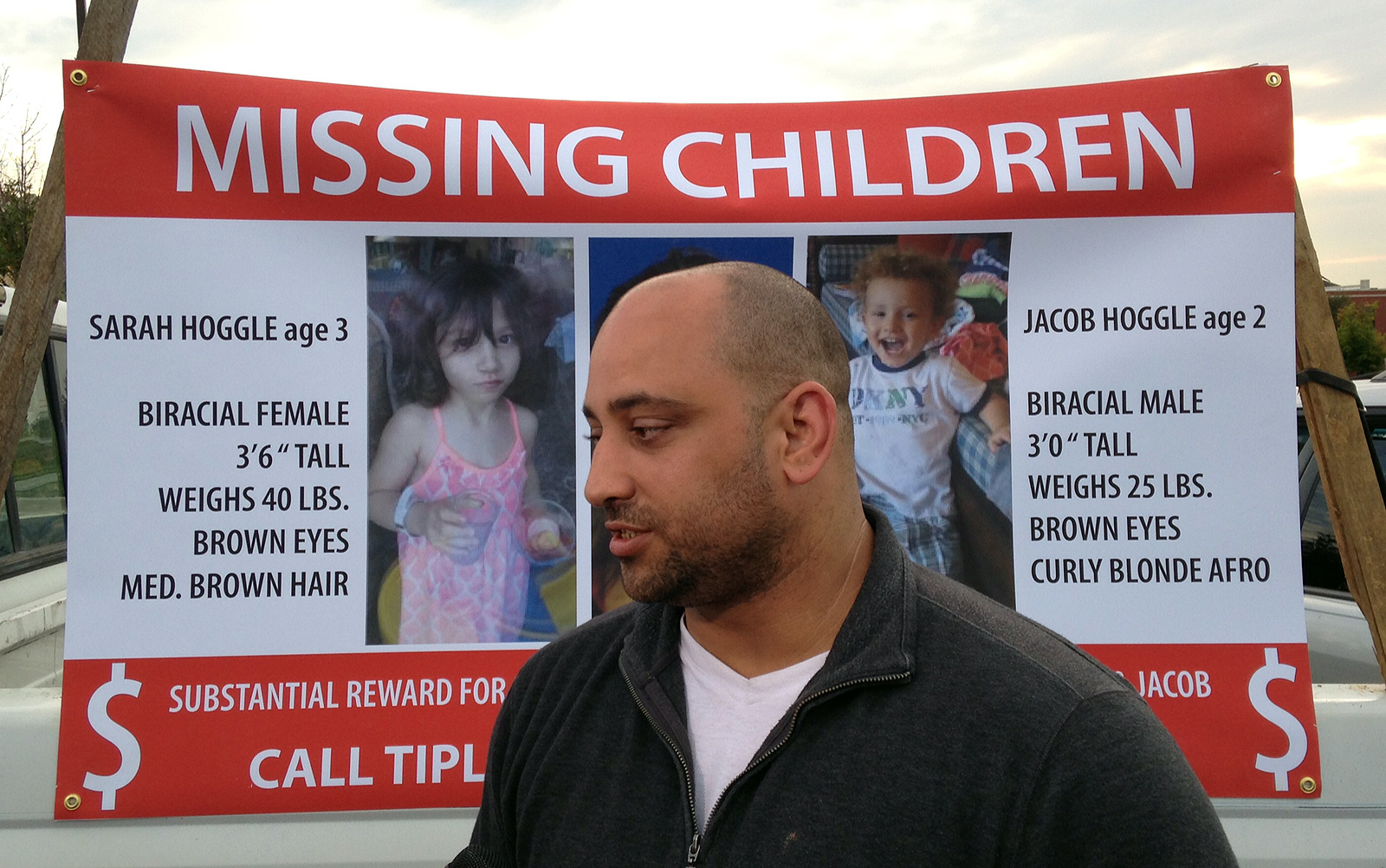September will mark five years since 3-year-old Sarah Hoggle and her 2-year-old brother Jacob were last seen — WTOP has learned the children’s father is concerned time may be running out for Catherine Hoggle to stand trial for their children’s murders.
Hoggle was arrested in September 2014 and charged with three misdemeanors in connection with Sarah and Jacob’s disappearance. She has been found not competent to stand trial since then.
“She is literally getting away with murder,” said Troy Turner, who fathered the two missing children, as well as a third child, with Hoggle.
Turner and Montgomery County prosecutors have maintained that Hoggle is feigning mental illness while being treated and evaluated at Clifton T. Perkins Hospital in Jessup, Maryland.
“It’s incredibly scary that she could kill two children, and then the system would just allow them to malinger, when there’s clear evidence that she’s been competent pretty much this entire time,” Turner said in a WTOP interview.
Doctors at Perkins have repeatedly found Hoggle incompetent to stand trial but have opined she could be restored to competency.
Under Maryland law, misdemeanor charges must be dismissed against a defendant who is found incompetent to stand trial for a period of three years, while felony charges must be dismissed after five years.
In 2017, as a three-year deadline approached, Montgomery County prosecutors indicted Hoggle for the murders even though their bodies have never been found.
WTOP has learned Hoggle’s attorney could file a motion to have her murder charges dismissed after Sept. 15 — five years after she was charged with her third misdemeanor.
At issue: did Hoggle’s indictment on felony charges in 2017 start a “new clock” for prosecutors, or is she entitled to have her felonies dismissed five years after she was initially arrested on misdemeanor counts.
Sources said prosecutors and defense lawyers have not found earlier Maryland cases that exactly mirror Hoggle’s circumstances.
If Hoggle’s lawyer David Felsen filed a motion to have charges dropped, prosecutors would argue there was precedence in similar cases for the trial to continue.
“Her family members have signed affidavits stating she has shown she’s completely competent to them,” said Turner, citing 2015 statements conducted for his attorneys with the firm of Shulman Rogers.
In December 2015, Hoggle’s mother, Lindsey, said: “Catherine is an extremely intelligent but also an extremely manipulative woman.”
Referring to the legal definition of competency to stand trial in Maryland — understanding the nature and object of the proceedings, and being able to assist in one’s own defense — Lindsey Hoggle said of her daughter: “I am absolutely confident that she is fully competent under this standard.”
Catherine Hoggle’s aunt, Leigh Blevins, in a December 2015 statement, said her niece had discussed a scenario in which she would not have to go to jail.
“She has told me that if she stays ‘incompetent’ long enough, she will have a chance of going home someday, and that perhaps she might have to the opportunity to raise … Troy and Catherine’s third child,” said Blevins.
Hoggle’s attorney David Felsen, and Ramon Korionoff, spokesman for Montgomery County State’s Attorney’s Office, declined to comment about the ongoing case.
In April, Circuit Court Judge Robert Greenberg denied prosecutors’ request to allow an independent doctor to evaluate Hoggle. In a March hearing, Assistant State’s Attorney Ryan Wechsler had told Greenberg that doctors at Perkins — the state psychiatric hospital — were doing “a substandard job in evaluating Ms. Hoggle.”
Felsen had argued: “They don’t like the results — there’s no indication that [the Perkins finding] isn’t proper.”
Troy Turner said he is fearful that Catherine Hoggle may be released into the public.
“There’s the possibility that she could be walking the streets in a few months,” Turner said. “It’s more than just a scary thought for our family at home, I think for the entire community.”
Even if charges were dismissed against Hoggle, she could be civilly committed to Perkins, or another institution if she is determined to be a danger to herself or others.









